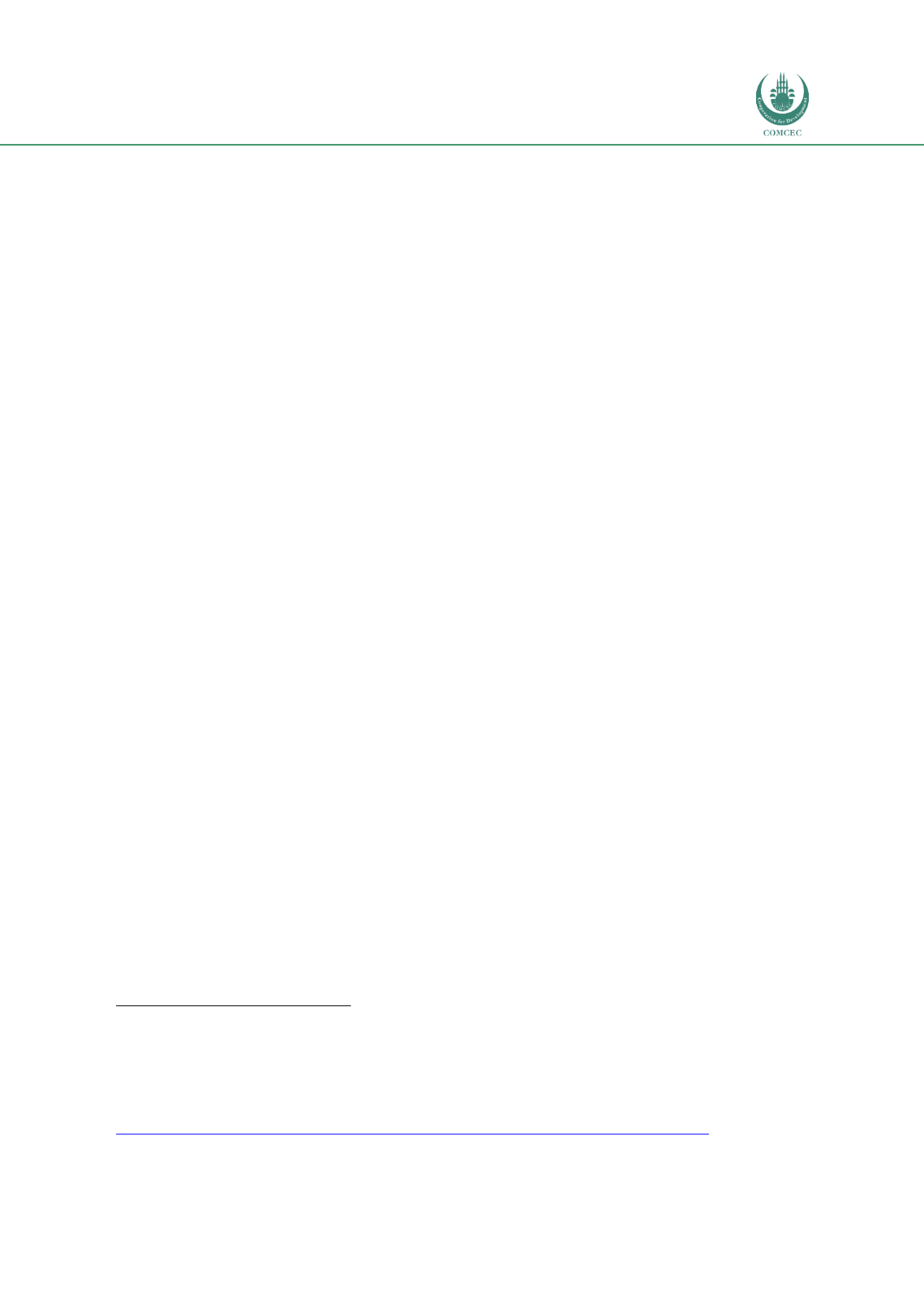

Islamic Fund Management
117
Institutional investors:
Apart from banks and financial institutions, Pakistan has a limited
number of cornerstone institutional investors. Important government-linked institutions such
as the Employees Old Age Benefits Institution (EOBI)
12
and the provident funds of companies
do not invest in mutual funds. Rather, they manage their own investments. This is different
from Malaysia’s approach in the case of the EPF, as explained earlier (refer to the Malaysian
case study).
Furthermore, banks and DFIs have some restrictions when investing in funds. The SBP in its
Prudential Regulations for Corporate and Commercial Banking, 2015 (under Regulation R-6)
sets the following limits:
The aggregate equity investment limit for banks and DFIs that are mobilising funds as
deposits/COIs from the public/individuals will be 30% of their respective equity.
For Islamic banks and DFIs that are not mobilising funds as deposits/COIs from the
public/individuals, the aggregate investment limit will be 35% of their respective equity.
Exposure because of strategic investments and investment in the units of all forms of
mutual funds, excluding NIT units until its privatisation, can also be considered part of
the abovementioned limits.
The aggregate investment limit for units of REITs will be 10% of the equity of the
bank/DFI, exclusive of the above stated aggregate limits.
Foreign investors:
Foreign investment in funds is very limited in Pakistan. All AMCs are
domestic. The market does not have any liberalisation policies to attract foreign AMCs to open
their businesses there.
Supply Side
Diversification of product innovation:
As discussed earlier, the Islamic asset management
industry in Pakistan is currently limited to mutual funds, pension funds and REITs while ETFs
are still under development. This is due to a lack of investment avenues or investible assets.
Availability of Shariah-compliant investible assets:
Pakistan’s
market suffers from
insufficient short-term instruments. As at end-2017, the outstanding value of conventional
treasury bills (T-bills), which are auctioned twice every month and serve as a liquidity
instrument for the money market, was PKR7589.1 billion (SBP, n.d.). The government,
however, has not issued any similar Islamic short-term papers. This has resulted in Shariah-
compliant funds, especially the money market ones are not able to deploy their liquidity at a
better yield compared to bank rates.
Similarly, the issuance of long-term sovereign sukuk, which can create a benchmark yield
curve for corporate issues, is also lacking. As at end-2017, the outstanding value of federal
12
The
EOBI
had been established under Employees’ Old-Age Benefits Act, 1976. It is a semi-autonomous institution working
under the auspices of the Ministry of Overseas Pakistanis and Human Resource Development. A tripartite corporate board of
trustees manages the operations of the EOBI where, along with government officials, labour and employer representatives
are also present. The EOBI Act is only applicable to the private sector and all firms (industrial or commercial, including
banks) where at least five workers, whether contractual or regular, have been employed or were employed in the last 12
months. The laws remain applicable even if the number of persons employed is subsequently reduced to less than five. A
business with less than five employees can get its employees registered with the EOBI on a voluntary basis. Refer:
https://paycheck.pk/main/labour-laws/social-security-1/social-security-and-pension-system-in-pakistan















